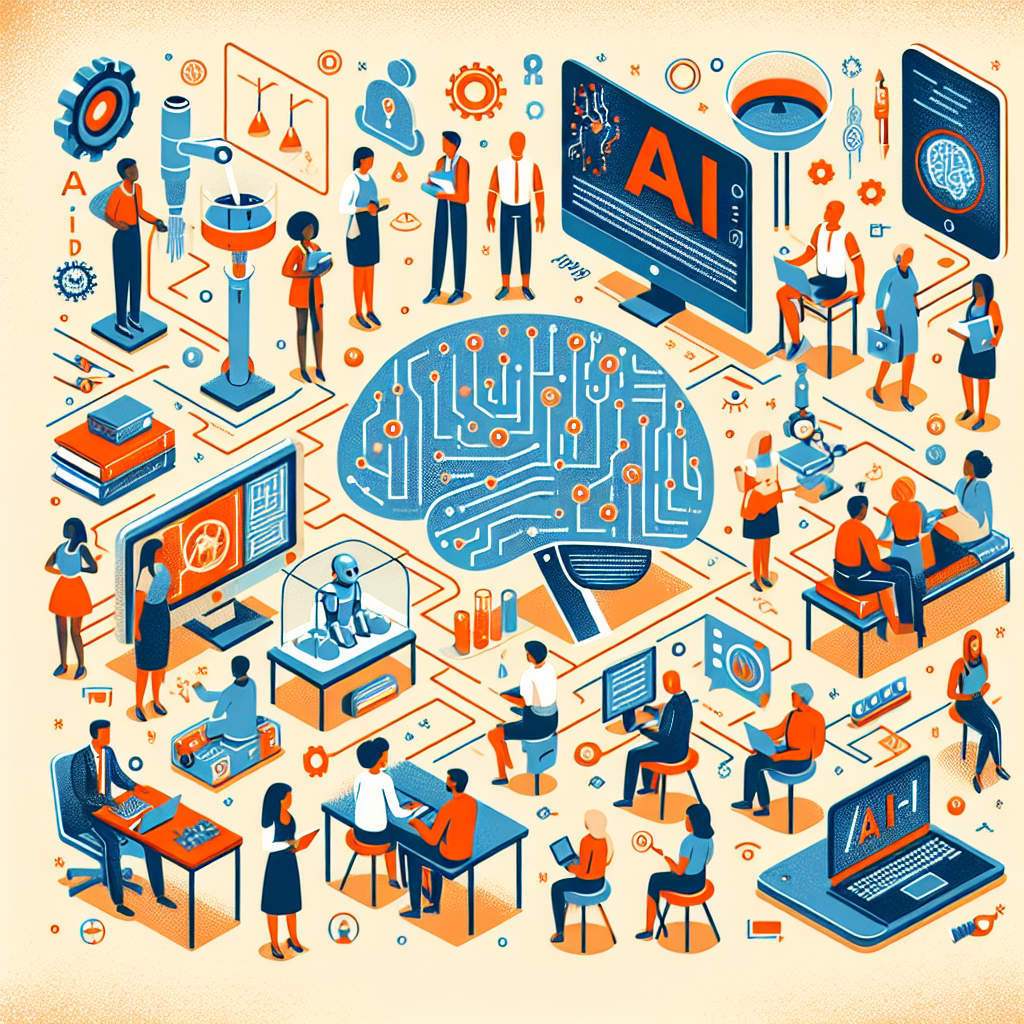With the rapid advancement of artificial intelligence (AI) technology, there is a growing concern about the potential impact it may have on society. While AI has the potential to revolutionize industries and improve efficiency, there are also fears that it could exacerbate existing inequalities and create new forms of discrimination. In order to prevent this from happening, there is a need to democratize AI and ensure that it is accessible to all members of society.
Democratizing AI means making the technology more widely available and ensuring that it is used in a fair and equitable manner. This involves not only increasing access to AI tools and resources, but also addressing issues such as bias and discrimination in AI algorithms. By democratizing AI, we can create a more equal society where everyone has the opportunity to benefit from the potential of this technology.
One of the key ways to democratize AI is by increasing access to AI tools and resources. This can be done through initiatives such as open-source software, which allows developers to freely access and modify AI algorithms. By making AI tools more accessible, we can empower a wider range of people to harness the power of AI and create innovative solutions to societal challenges.
Another important aspect of democratizing AI is addressing bias and discrimination in AI algorithms. Many AI algorithms are trained on biased data sets, which can lead to discriminatory outcomes. For example, AI algorithms used in hiring processes may perpetuate gender or racial biases if they are trained on historical data that reflects these biases. By ensuring that AI algorithms are fair and unbiased, we can prevent the perpetuation of inequalities in society.
In addition to increasing access to AI tools and addressing bias in algorithms, democratizing AI also involves promoting diversity and inclusivity in the AI industry. Currently, the AI industry is dominated by a small group of companies and individuals, which can limit the perspectives and experiences that are represented in AI development. By promoting diversity and inclusivity in the AI industry, we can ensure that a wide range of voices and perspectives are heard, leading to more equitable outcomes for all members of society.
Overall, democratizing AI is essential for creating a more equal society where everyone has the opportunity to benefit from the potential of this transformative technology. By increasing access to AI tools, addressing bias in algorithms, and promoting diversity in the AI industry, we can ensure that AI is used in a fair and equitable manner that benefits all members of society.
FAQs:
Q: What are some examples of AI bias?
A: AI bias can manifest in various ways, such as gender or racial bias in hiring algorithms, bias in predictive policing algorithms that target minority communities, and bias in healthcare algorithms that disproportionately impact certain demographic groups. These biases can have serious consequences and perpetuate inequalities in society.
Q: How can individuals contribute to democratizing AI?
A: Individuals can contribute to democratizing AI by advocating for transparency and accountability in AI algorithms, supporting initiatives that promote diversity and inclusivity in the AI industry, and learning about the potential impact of AI on society. By raising awareness and taking action, individuals can help ensure that AI is used in a fair and equitable manner.
Q: What are some challenges to democratizing AI?
A: Some challenges to democratizing AI include the concentration of power and resources in the hands of a small group of companies, the lack of diversity and inclusivity in the AI industry, and the complexity of addressing bias in AI algorithms. Overcoming these challenges will require a concerted effort from policymakers, industry leaders, and individuals to ensure that AI is used in a fair and equitable manner.
Q: How can policymakers promote the democratization of AI?
A: Policymakers can promote the democratization of AI by implementing regulations that require transparency and accountability in AI algorithms, supporting initiatives that increase access to AI tools and resources, and promoting diversity and inclusivity in the AI industry. By creating a regulatory environment that encourages fair and equitable use of AI, policymakers can help ensure that the benefits of this technology are shared by all members of society.

